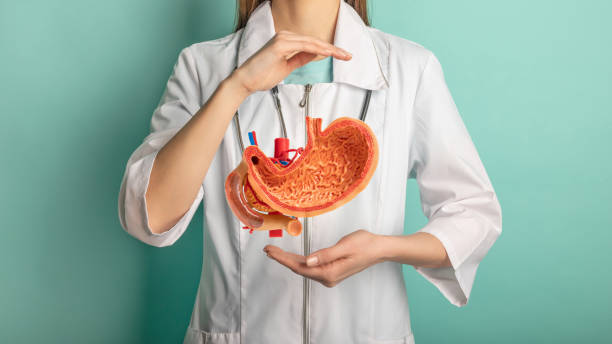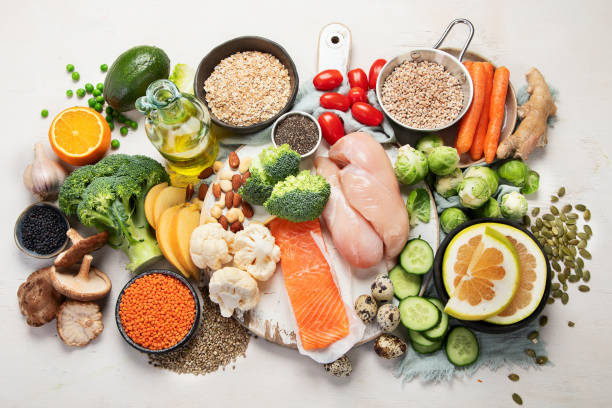Undergoing a colonoscopy can be a significant event in one’s health journey, marking a proactive step towards maintaining digestive wellness. However, the procedure itself is only part of the equation; what comes after is equally critical. The period following a colonoscopy is a delicate time for your digestive system, which has just been through a thorough examination. This makes choosing the right foods to eat not just a matter of comfort, but a pivotal decision in ensuring a smooth and swift recovery. In this comprehensive guide, “What To Eat After A Colonoscopy,” we delve into the intricacies of post-procedure nutrition, offering expert insights and practical advice to navigate this crucial phase.
Our aim is not only to guide you through the immediate aftermath but also to empower you with knowledge that promotes long-term digestive health. Whether you’re wondering about the best foods to reintroduce into your diet, how to manage potential discomfort, or simply seeking reassurance on your road to recovery, this article is designed to address your concerns. By illuminating the path to optimal post-colonoscopy nutrition, we endeavor to alleviate any apprehension, equipping you with the confidence to make informed dietary choices. Join us as we explore a tailored nutritional approach that fosters healing, supports your digestive system, and rejuvenates your body. Let’s embark on this journey together, ensuring that your recovery is as comfortable and effective as possible.
What Is A Colonoscopy?

A colonoscopy is a medical procedure used to examine the inside of the large intestine (colon) and rectum. It involves using a long, flexible tube with a camera and light attached to it, called a colonoscope, to view the lining of the colon. The procedure is typically done to screen for colorectal cancer or diagnose intestinal issues such as polyps, ulcers, or inflammation. It is also a way for doctors to monitor and treat certain conditions, such as inflammatory bowel disease (IBD).
Immediately After Procedure (First Day)
In the first 24 hours following your colonoscopy, the three key rules are: start slow, avoid certain foods, and stay hydrated.
Starting slow
When you first begin eating again, go easy on your digestive system by starting with clear liquids:
- Water
- Clear broths (chicken, vegetable, beef)
- Clear juices (apple, white grape, lemonade)
- Popsicles
- Gelatin
After tolerating clear liquids without issues, slowly introduce blander, more easily digestible foods:
- Crackers
- Applesauce
- White bread or toast
- Soup
Avoiding specific foods
Right after your colonoscopy, you’ll want to avoid foods that may cause gas or digestive discomfort, including:
- Dairy products
- Very sugary foods and drinks
- Spicy foods
- Fatty or fried foods
- Tough meats or meats with a casing (like sausage or hot dogs)
- Raw fruits and vegetables
Stick to low-fiber foods at first to give your colon time to heal. High-fiber foods like whole grains, beans, nuts, seeds, and many raw veggies can be reintroduced after a couple days.
Staying hydrated
Be sure to drink plenty of fluids like water, diluted juices, or electrolyte-rich sports drinks. Staying hydrated is key to recovering quickly and avoiding constipation.
Moving Forward (1-2 Days Later)
After the first 24 hours, you can slowly transition to a low-residue diet as your colon continues healing. Follow your doctor’s instructions on how long to maintain this type of diet.
Low-residue diet recommendations
A low-residue diet limits foods that could irritate or overwork your healing colon. Recommended foods include:
- White bread or toast
- Pasta, white rice
- Cooked vegetables without skins or seeds
- Canned fruits like peaches, pears, fruit cocktail
- Tender meats like chicken or fish
- Mashed potatoes
- Creamy peanut butter
- Eggs
- Yogurt
Avoid:
- Whole grains and bran
- Raw fruits and vegetables
- Dried beans, corn, peas
- Nuts, seeds
- Popcorn
- Carbonated beverages
Additional restrictions after polyp removal
If your doctor removed any polyps during your colonoscopy, they may recommend avoiding foods with small seeds (like tomatoes, cucumbers, strawberries, raspberries) for up to 3-5 days post-procedure. This allows polyp sites extra time to heal.
Long-Term Colon Health
While short-term dietary changes promote recovery after your colonoscopy, certain lifestyle factors impact your colon health over the long run.
Regular colon cancer screening
- Colonoscopies every 10 years from age 45-75 help detect colon polyps or cancer early when treatment is most effective.
- African Americans should start screening at age 45 due to higher risk.
- Those with a family history may need earlier or more frequent screening.
Diet and nutrition
A diet rich in fiber, lean protein, fruits, and vegetables may reduce colon cancer risk, while limiting red meat, processed foods, sugary drinks, and excessive saturated fat.
Recommended foods:
- Fruits: berries, citrus fruits, melons
- Vegetables: leafy greens, cruciferous veggies like broccoli and cauliflower
- Whole grains: oats, brown rice, quinoa
- Nuts and seeds
- Legumes: beans, lentils, peas
- Lean protein: fish, skinless poultry, eggs, tofu
- Low-fat dairy: milk, yogurt, cheese
- Healthy fats: olive oil, avocados
Limit:
- Red and processed meat
- Refined grains
- Fried foods
- High-fat dairy
- Sweets and sugary drinks
Physical activity
Regular exercise reduces colon cancer risk. Aim for 150 minutes per week of moderate activity like brisk walking.
Smoking
Smoking is a major risk factor for many cancers including colon cancer. Quitting smoking and avoiding secondhand smoke is key for colon health. Talk to your doctor about cessation aids.
FAQ On Colonoscopy
When can I resume my normal diet after a colonoscopy?
Most people can gradually return to a normal diet 3-5 days after the procedure, or as directed by your physician. Reintroduce high-fiber foods slowly.
What helps promote gut health after a colonoscopy?
Probiotics, fermented foods like yogurt, and slowly increasing fiber can help restore digestive health. Check with your doctor for personalized advice.
How can I ensure a speedy recovery after my colonoscopy?
Follow your doctor’s dietary and lifestyle instructions carefully, rest when needed, and contact your physician if you have any persistent issues like pain or bleeding.
Conclusion
Eating the proper foods while avoiding potential irritants speeds healing and minimizes discomfort after your colonoscopy. Work closely with your physician for personalized guidance based on your health history and procedure details. Making positive long-term lifestyle choices helps maintain a healthy colon and reduces your risk of colon cancer.

